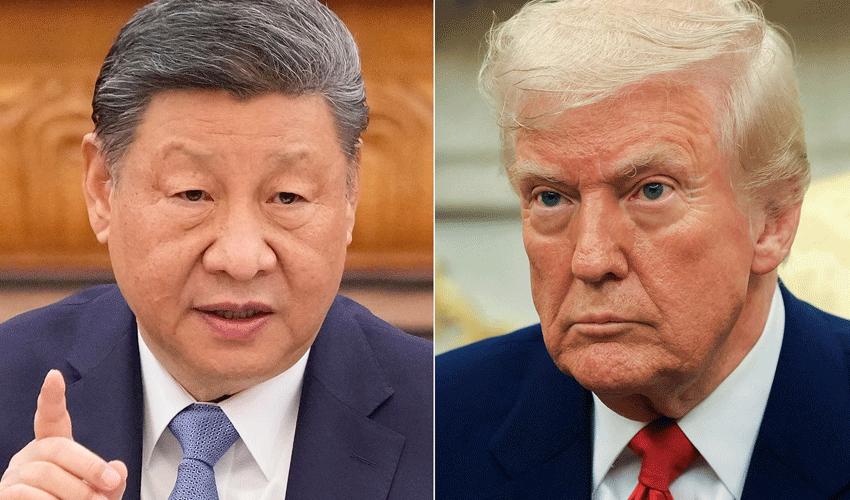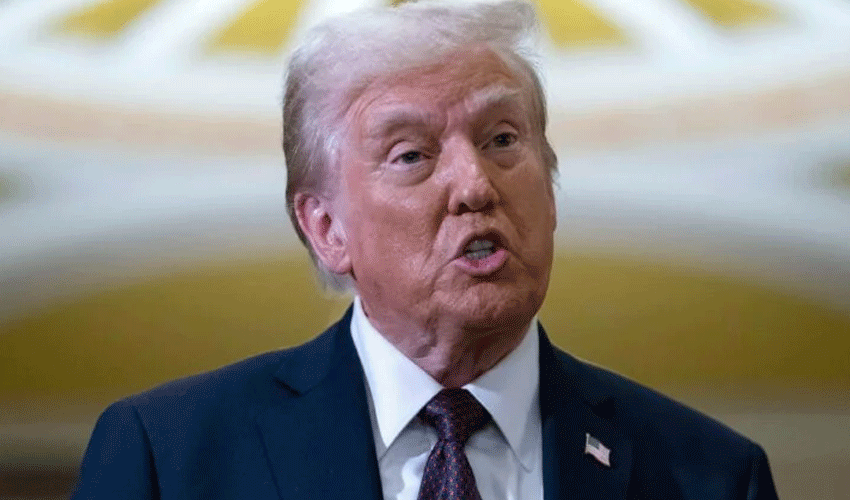Former President Donald Trump’s decision to grant a full pardon to Ross Ulbricht - the founder of the infamous dark web marketplace Silk Road - has ignited widespread debate on digital rights, government overreach, and the legality of online platforms.
The announcement, made on Tuesday, comes after years of controversy surrounding Ulbricht’s life sentence for his role in operating Silk Road, a digital black market that facilitated the illegal sale of drugs, weapons, and other illicit goods.
In a post on his social media platform, Truth Social, Trump expressed frustration with the severity of Ulbricht’s sentence, calling it “ridiculous” and criticizing the “scum” involved in his conviction. He also linked the actions of Ulbricht’s prosecutors to what he called the “weaponization of government” against him.
In a gesture of support, Trump also revealed that he had personally called Ulbricht’s mother to inform her of the pardon, emphasizing the influence of the Libertarian Movement, which had supported his presidency.
“I just called the mother of Ross William Ulbricht to let her know that in honor of her and the Libertarian Movement, which supported me so strongly, it was my pleasure to have just signed a full and unconditional pardon of her son, Ross,” Trump wrote.
Who is Ross Ulbricht?
Ross Ulbricht, now 40, was arrested in 2013 and later convicted in 2015 of creating and operating Silk Road, a dark web marketplace that allowed users to anonymously buy and sell illegal goods using Bitcoin. The platform facilitated over 1.5 million transactions worth more than $213 million, including $183 million in illicit drug sales.
Despite being sentenced to life in prison without the possibility of parole, Ulbricht’s case became a symbol for those advocating for digital freedom, with his supporters arguing that he was unfairly prosecuted for creating a platform that merely provided a space for transactions rather than directly engaging in criminal activities.
Ulbricht’s arrest in 2013 and his subsequent conviction marked the end of what law enforcement officials called “the most sophisticated and extensive criminal marketplace on the Internet.” As of 2024, Ulbricht had served over a decade behind bars, and his supporters rallied for his release, claiming he was a victim of government overreach.
What is Dark Web?
The dark web refers to a part of the internet that is not indexed by traditional search engines and requires special software to access, most commonly the Tor browser. 
While the term “dark web” is often associated with illicit activities, it is also used by individuals who seek privacy, such as journalists, activists, and whistleblowers, especially in countries with oppressive governments.
The dark web operates as a hidden layer of the internet, where users can communicate and transact anonymously. Its use of encryption and anonymizing technology has made it a haven for individuals engaged in illegal activities, such as drug trafficking, human trafficking, arms trading, and money laundering. However, it is also a platform for privacy-conscious individuals who wish to avoid surveillance or censorship.
What is Silk Road?
Silk Road was one of the most notorious marketplaces on the dark web, created by Ross Ulbricht in 2011. Ulbricht, operating under the alias “Dread Pirate Roberts,” created the platform as a digital marketplace for individuals to anonymously buy and sell goods using Bitcoin, the cryptocurrency that promised to provide both privacy and security. While Ulbricht initially marketed Silk Road as a platform for free-market libertarians, it quickly became a hub for the sale of illegal drugs, counterfeit goods, hacking tools, and other illicit products.
Silk Road’s main appeal lay in its ability to facilitate anonymous transactions. Users accessed the marketplace through the Tor network, which hides the users' IP addresses, making it difficult for law enforcement agencies to track their activities. Payments were made using Bitcoin, which further obscured the identities and locations of buyers and sellers. At its peak, Silk Road had over 4,000 drug vendors and served more than 100,000 customers across the globe, including individuals from countries such as the United States, Australia, Argentina, and the United Kingdom.
During its operation, Silk Road generated substantial revenue, with Ulbricht reportedly earning $18 million in Bitcoin commissions. However, law enforcement agencies were able to infiltrate the marketplace, eventually leading to Ulbricht’s arrest in 2013. His conviction included charges of money laundering, drug trafficking, and conspiracy to commit computer hacking, among others.
The platform was shut down by the FBI in 2013, but its closure did not mark the end of dark web marketplaces. Other platforms quickly emerged to fill the void left by Silk Road, continuing the cycle of illegal trade in the digital world.



























